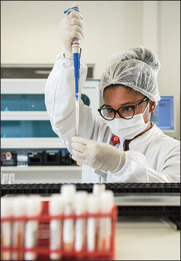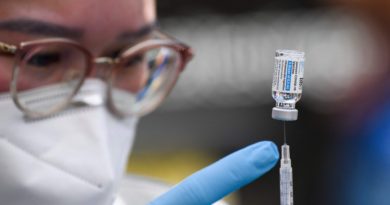Research and higher education in the time of COVID-19
The COVID-19 pandemic has propelled the research and higher education sectors to the forefront of public attention. Laboratory capacity has been crucial for diagnostic testing; experts in infectious diseases, epidemiology, public health, mathematical modelling, and economics are central to national policy making and media coverage; clinical research has been vital to improving COVID-19 management; and our collective global future relies heavily on the development of an effective vaccine against severe acute respiratory syndrome coronavirus 2. Meanwhile, the pandemic is undermining the ability of researchers to do their jobs and of universities to provide a high-quality and safe educational experience for students. As the northern hemisphere looks forward to the beginning of a new academic year, the troubling effects of the pandemic on research and higher education are coming into sharp focus. Immediate challenges such as campus safety, university admissions processes, and online learning arrangements are dominating the discussion. But the pandemic will have complex, unexpected, and long-term implications for research that must be anticipated now.
Health research systems, like care systems, comprise several multidimensional and interacting pillars. First, a workforce with the skills, training, experience, relationships, and networks needed for research excellence. Second, the necessary resources, including funding, infrastructure, workplace conditions and rights, management, incentive structures, research cultures, and academic freedom. Third, multidisciplinary perspectives that are supported by science beyond medicine, public health, and policy, including social and behavioural sciences, such as anthropology, psychology, sociology, and media and communication studies. Together with basic and translational sciences, such multidisciplinary research is fundamental to the development and uptake of treatments, vaccines, and diagnostics.
Considering health research and education as a system, rather than focusing on individual components, can help build a more complete picture of the challenges and opportunities ahead. Many of the effects of COVID-19 on health research are likely to be difficult to predict and could produce a combination of desirable and detrimental outcomes. Online learning, for example, could make education more accessible for some students, while disadvantaging others if an equitable approach that takes a system-wide view is not implemented. Likewise, travel restrictions might make international collaboration more difficult for researchers, but they might also prompt the development of more environmentally sustainable and inclusive research practices. Understanding health research as a system also stimulates consideration of power relations between actors, and it is crucial to ask how the pandemic could influence inequality, including around career stage, gender, race, wealth, and geography. Finally, the boundaries of health research systems are blurred, and appreciating contextual features, such as history, politics, and economics, will be key to understanding how COVID-19 might destabilise and reshape these systems.
Protecting and strengthening research in the midst of COVID-19 will require thoughtful and concerted efforts on the part of governments, funders, universities, and academic communities to collaboratively develop, implement, and fund long-term plans that elevate the voices of students and researchers in national policy decisions. Sustainable research systems are vital, not just to the success of pandemic responses but also to the health of all societies the world over.

Article Info
Publication History
Published: 29 August 2020
Identification
Copyright
© 2020 Elsevier Ltd. All rights reserved.




